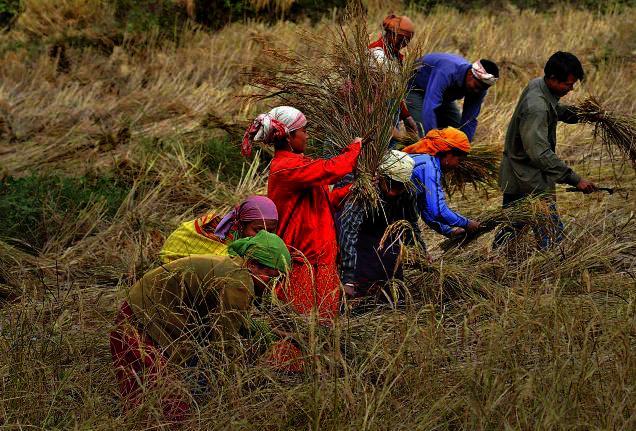Ranjit, a high yielding rice variety developed by Assam Agricultural University (AAU) have shown 66 per cent increase in productivity. Technology Showcasing Programme on Seed Production of crops was undertaken recently in five villages of Assam in and around Khetri and Kamrup districts. Hemchandra Saikia, a subject matter specialist in Agricultural Economics revealed that Krishi Vigyan Kendra in Kamrup intervened by providing quality seed of Ranjit along with recommended doses of fertilizers and required technical helps in the form of advices and training to villagers of Deulguri, Chitalpur, Khaloibari, Nuwagaon and Bhadarkuchi and the result was an increase of 65.86 per cent in productivity. The gross return increases by 148.79 per cent over the previous level of productivity and gross return (before the intervention of the Krishi Vigyan Kendra's programme). The concept of the programme of Technology Showcasing Programme on Seed Production of crops was propounded by Dr. K. M. Bujarbaruah, the Vice Chancellor of AAU and under his leadership and guidence the programme was materialised and yielded very encouraging result in other districts of Assam also.
It may be mentioned that the Regional Agricultural Research Station (RARS) of Assam Agricultural University at Titabor has developed a submergence resistent gene in rice variety of Ranjit recently which brings good harvest to flood-hit farmers offering great relief to them. RARS is a research institute of Assam Agriculture University in Jorhat and has been devoting for better scientific cultivation and production for years.
Flood-hit farmers have successfully harvested from the submergence-resistant Suvarna Sub-1(SS-1) variety paddy in 2013. In 2009 for the first time farmers of the state had harvested the water-resistant variety SS-1 in the flood prone areas. The successful experimentation with SS-1 encouraged the Agriculture Department to promote the production of the variety on a wider scale since that year. Scientists, working with drought and water submergence resistant properties, feel those should be instilled in other popular rice varities in India like Sambha masuri, IR-64 etc. The Indian Agricultural Research (ICAR) along with Manila-based International Rice Research Institute (IRRI) is planning to come out with upgraded version of SS-1. The IRRI had released the seed 'Suvarna Sub-1' developed by India in six countries that include Bangladesh, Nepal, Cambodia and Myanmar.





Add new comment